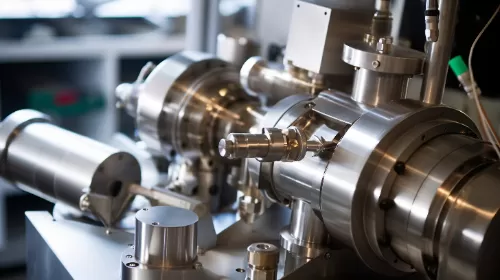Click to Get Big Benefits
-
Quadrupole Mass Spectrometer

-
Sims Spectrometer

-
Gas Chromatography Mass Spectrometry

-
$country Mass Spectrometry Labs

-
Liquid Chromatography Mass Spectrometry

-
lcms Spectrometry


As this innovation bridges lab research and daily life, breath analysis is poised to redefine preventive care. No needles, no waiting—just a quiet exhale that could one day reveal risks for conditions like diabetes, lung cancer, or Parkinson’s. In a world where health monitoring often feels invasive or reactive, mass spectrometry offers a revolutionary premise: that the gentlest of breaths might hold the sharpest insights into our well-being.
How It Works: From Breath to Diagnosis
Mass spectrometry operates by ionizing breath molecules and sorting them by mass-to-charge ratio, creating a chemical fingerprint unique to each sample. This process identifies trace compounds linked to diseases: for example, lung cancer patients’ breath may contain elevated benzene or toluene, while diabetes generates acetone. Mass spectrometry's sensitivity—detecting molecules at parts-per-trillion levels—makes it ideal for spotting early-stage conditions. By comparing these fingerprints to known biomarkers, researchers can pinpoint health anomalies with unprecedented precision.
Beyond Traditional Testing
Mass spectrometry-based breath analysis revolutionizes healthcare by overcoming limitations of conventional methods. Unlike blood tests or biopsies, it offers non-invasiveness, speed, and early detection. Mass spectrometry eliminates needles and radiation, delivering results in minutes instead of days. This agility is critical for conditions like COVID-19, where rapid diagnosis saves lives. Moreover, mass spectrometry detects diseases at asymptomatic stages—when interventions are most effective—opening doors to proactive healthcare.
The Future of Personalized Healthcare
Mass spectrometry is driving a shift toward personalized medicine. Companies like Breath Analysis Inc. are developing portable devices for home use, enabling individuals to monitor health in real time. Hospitals are integrating mass spectrometry into routine checkups to screen for Alzheimer's, Parkinson's, and long-haul COVID-19. By cross-referencing breath data with patient histories, AI-powered tools like IBM Watson refine diagnoses, reducing errors and improving outcomes. This technology could slash healthcare costs by preventing advanced-stage illnesses, making preventive care accessible to all.
Challenges and Advancements
Despite its promise, mass spectrometry faces hurdles. Variability in breath composition—affected by diet, exercise, and environment—complicates standardization. Algorithms must distinguish disease signals from background noise, requiring extensive training. However, AI advancements are accelerating progress. Machine learning models now analyze thousands of breath samples to identify subtle patterns, enhancing accuracy. As mass spectrometry becomes more user-friendly and affordable, its adoption in clinics and homes will grow, transforming how we protect and manage our health.
Conclusion: Breathe Easier, Live Better
Mass spectrometry is transforming breath from a mundane bodily function into a powerful health tool. By decoding molecular clues in your breath, this technology offers a glimpse into the future of medicine—one where early detection and personalized care become the norm. As research progresses, a simple breath test may soon be as routine as checking your blood pressure.

All News
Others
- Terms of use
- Privacy Policy
